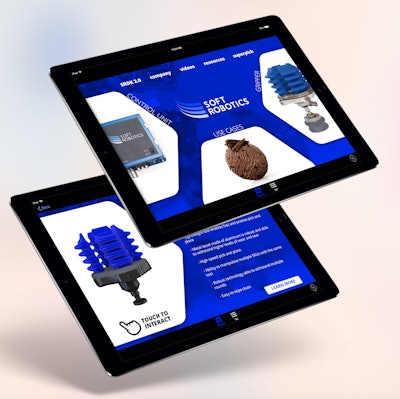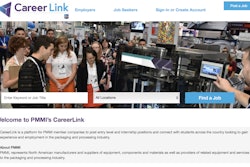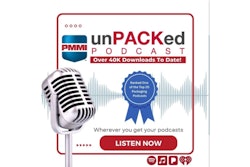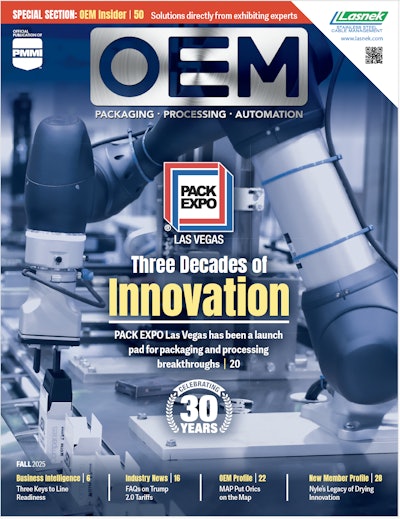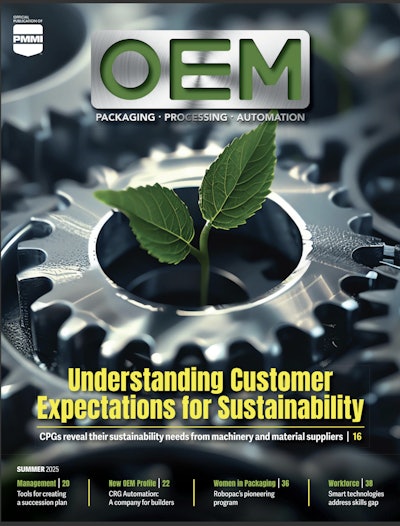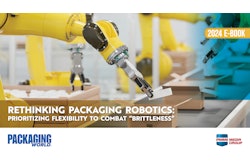By: Hans Fuller, Contributor and Founder, Modern Industrial Marketing
In 2010, when the iPad was introduced, I was in charge of marketing for a $250 million manufacturing company and I remember thinking to myself, “Someday soon, every outside salesperson will be using one of these things.” Industrial business to business (B2B) prides itself on doing more with less. So a tablet could help with product launches, technical training and the distribution of the materials that salespeople need to be a valuable resource to their customers.
Fast forward to today. Mobile technology is everywhere, but it is still curiously absent from the OEM sales conversation. Why? It’s not that the technology isn’t ready. And it’s not that the OEM sales story wouldn’t be enhanced by being able to present on a mobile device without a connection. Here are two primary reasons:
1) Choosing the right technology for the job—independent of vendor or platform—is confusing. Web-based tools seem universal and familiar, but often go unused. Apps are expensive to build and maintain, and are prone to unexpected crashing which results in panicked calls to the developer. And then there are tools that fall somewhere in between that are both app-like and web-like. The best of both worlds or the worst of both worlds?
2) Project ownership. The approval process and budgeting is unclear because mobile technology seems to fall in between the sales, marketing and IT departments. The sales team wants and needs better tools. The marketing team already has enough projects going and wants a guarantee that the sales team will use it. But sales can’t promise anything until they actually have the tool in the field. And it’s rare that an IT group is seeking more ways to put information on the cloud or on a mobile device. So these projects die in committee, fall victim to technical stonewalling and end up on the back burner indefinitely.
But have you ever looked at a tablet or smartphone and thought about how magical it is that you can have reams of information, hours of video, thousands of images, selection tools and calculators all at your fingertips?
Mobile technology is an area that is ripe for the sales conversation, but there needs to be an easier way to manage product data, video content, analytics and field user access. By uniting hardware and industry-specific marketing software that can be customized to the company, mobile technology can become the perfect sales tool for industrial B2B.
At Modern Industrial Marketing, our goal is to help clients in the industrial B2B space become better marketers. And that starts with a good story. Companies like Soft Robotics, a supplier of robotic automation and pliable grippers for the food packaging industry, wanted to tell their story using mobile technology. But, like many of our customers, Soft Robotics found themselves getting herded onto a Do it Yourself (DIY) platform that felt more like navigating folders than storytelling.
Early on, we tried to help our customers navigate these DIY offerings, but we couldn’t find the right mix of platform-based reliability and customization that would enable sales professionals to tell a better story while leveraging existing materials. So, we decided to develop it ourselves. The product, StorySlab, is a tool specifically for industrial B2B sales and marketing that includes offline functionality, an intuitive interface to make it easy to use, and the ability to quickly make updates without having to involve a developer.
The secret is in the story—and the software
I’ve spent my whole career in industrial markets, which may or may not be the reason that I never became one of those patient, colorful storyteller-types. Whoever heard of industrial storytelling, anyway? But whenever I say those two words together, manufacturers and OEMs perk up because every business has a story that’s likely not being conveyed as well as it could be. The idea of telling a better story resonates in industrial markets partly because those organizations are not wired to show their softer side. People can compare specs on their own, but they look to you and your salespeople when it comes to getting to know the company that stands behind the product. What differentiates you? Who else have you done this for? What can I expect when things go right? How will you help me if they go wrong? Mobile technology will not create answers that don’t exist, but luckily for you, the answers do exist, and putting the right materials in the hands of your sales team is half the battle.
The other half of the battle is getting the sales reps to use the mobile tools. Many OEMs have bought tablets, put them out in the field and waited for the productivity to ‘happen.’ It didn’t...and my phone started ringing with questions about how to show return on investment (ROI) from the hardware purchase before anyone noticed that the sales team was getting really good at Angry Birds.
The fact that your reps are perfectly comfortable using mobile technology and apps in their personal lives, but struggle when it comes to using these same tools for work, means that the excuse that the sales team is old-school and unable to embrace new technology is a myth. Build them easy-to-use apps that are designed around the way they sell and guess what happens? They use them. Salespeople are not that hard to figure out. They do what’s most efficient and most effective. They take the path of least resistance. And, more importantly, they adopt practices that get the job done. And if you sell though manufacturers’ reps or agents or another independent channel, the bar is even higher because you’re competing with their other lines. Therefore, ease of use is king.
Wherever you go, there you are
So here we are, eight years after my "every salesperson will be using these things" prediction. Was I right? Sort of. I believe I was 100 percent right that companies aspire to use more mobile technology. But perhaps only 10 percent right in terms of how many industrial B2B sales reps feel that they have mobile tools that actually elevates the sales conversation.
It seems logical that mobile tools can make the sales conversation more consultative, selling materials more accessible and salespeople more productive, plus provide actionable insights back to the marketing team. The good news is, you have excellent products, thoughtful sales materials and great salespeople. The expertise you and your team have amassed can be directly translated into good mobile tools. And it’s not too late. It’s still possible to keep ahead of (or leapfrog) your competitors as mobile technology can be a marketing win without being a huge resource and time sink.
